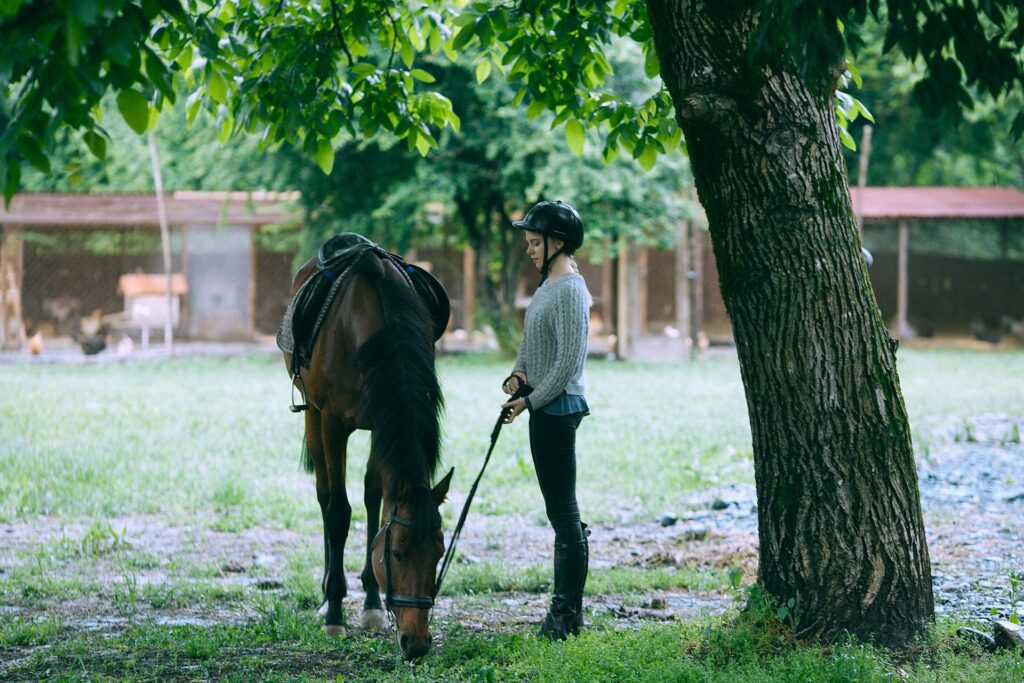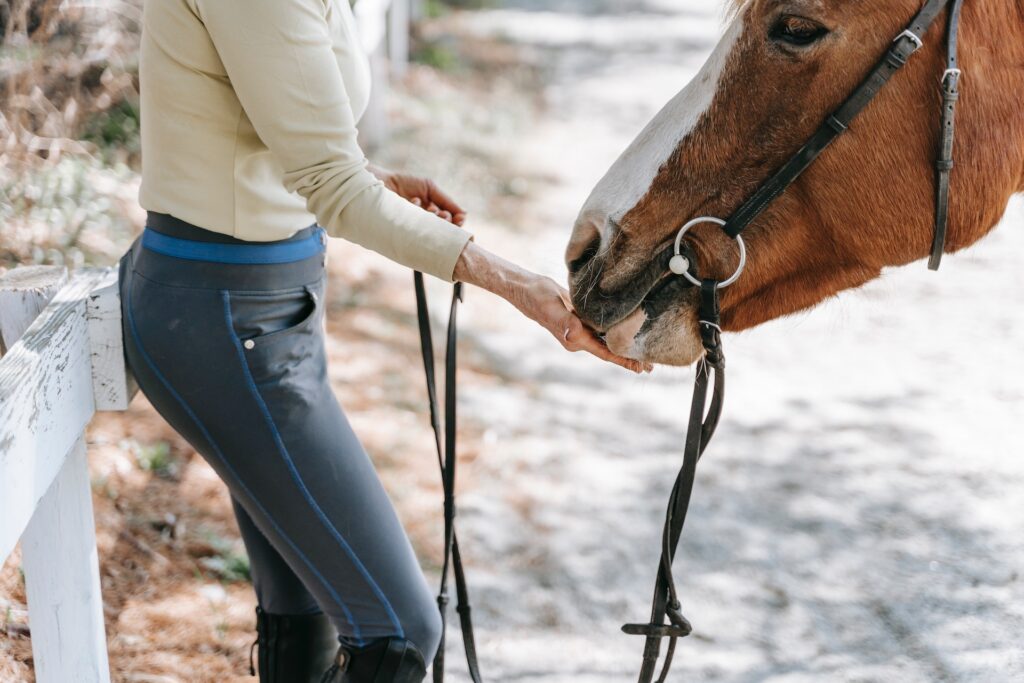Often we ask ourselves, “Can horses eat meat?” Although we are tempted to believe they can, there are many reasons why they cannot. This article will discuss a few of them.
Herbivore
You will be happy to know that horses are herbivores. Herbivores, unlike carnivores can digest plant matter, but they can also process other food.
Herbivores have the ability to extract protein, fiber, and even sugars from plants. They chew, crush and grind plant fibres, breaking them down into an easy-to-digest substance. They can eat raw grass, bones, or other plant material. Horses have a jaw that grinds food.
Horses’ digestive tract is designed for the processing of cellulose from plant material. The horse’s gastrointestinal tract is home to high levels of total anaerobic bacteria. These bacteria are found in the small and large intestines. This makes the equine digestive system capable of processing enzymatically.
The equine digestive tract is very large. The stomach is one chamber with the hindgut being another. The stomach has more anaerobic bacteria than the small intestine. This makes it possible for the equine to digest plant matter in a short amount of time. This results in better nutritional intake.
Herbivores are also known to be alert. They can turn their heads in circular motions to scan the area for potential predators. These animals also have sharp teeth.
Some herbivores will eat small amounts, but they also graze. These opportunistic carnivores may eat other animals to survive. Many people have been intrigued by a viral video of a horse eating a baby chicken.
There are some vegetables and fruits that are not suitable for horses. Some fruits, such apples, can be toxic. They can cause colic and laminitis. Others can cause red blood cell destruction. Garlic, scallions, onions, potatoes and cabbage can cause extremely painful and dangerous intestinal problems.
Although the horse’s gastrointestinal tract is designed to process plant matter, they can ingest other foods, including fish and pickles. In moderation, they can eat these items without causing problems. It doesn’t really matter what they eat. But it is important to prevent them from eating any human food that could be harmful.

Watermelon
There are many options to choose from whether you want to give your horse some treats or a healthy snack. Watermelon is a great choice. It is high in vitamin C, which has been proven to boost the immune system. It is also rich with fiber.
Some horses may love the taste of the fruit while others may not. If your horse is not used to eating a new food, you should try offering it in smaller portions. It may take some time before your horse will accept watermelon. Therefore, you might need to offer it several times.
You should always wash your watermelon before you feed it to your horse. This is to remove any pesticides that may be present in the fruit. It is also a good idea for watermelon to be cut into small pieces.
If your horse has an insulin problem, it should be avoided watermelon. Sugar can raise your horse’s blood sugar and cause dental problems. Horses with hyperkalemic periodic parlysis (HYPP), should avoid sugar.
Another thing to consider is the seeds. Because they contain cyanide, the seeds are not recommended to horses. Although the seeds contain a small amount of cyanide, they are still harmful. Besides, you should never feed your horse watermelon alone.
Cut watermelon into small pieces when feeding it to your horse. You should also remove any seeds from the watermelon before giving it to your horse. If your horse is older, or has dental problems, you should also cut off the rind.
The skin of watermelon can be eaten along with the seeds. It is rich in vitamins and minerals, including calcium. This is great for horses’ teeth. It is also rich in vitamin C, which can help your horse stay hydrated. It is great for cell repair.
You must remove the seeds and core from watermelon before you give it to your horse. Because it can be a source for many toxins, you should make sure the rind is clean.
Cucumbers
A great way to improve your horse’s health is to add cucumbers to their diet. This fruit is low on calories and high in important vitamins and mineral. It is also a good source for fiber.
However, it’s important to make sure that your horse isn’t ingesting too much of the fruit. A few ounces a day will be sufficient for most horses.
Besides its nutritional benefits, cucumbers are also beneficial for your horse’s joints. They contain a compound called quercetin that is anti-inflammatory. They are also rich in potassium which supports bone health and muscle health.
While cucumbers are safe for your horse, you should always be cautious with the foods you feed your horse. If you notice any unusual behavior in your horse, contact your veterinarian immediately.
While cucumbers may not be the most exciting treat to give to your horse, they are an effective way to help them drink more water. Cucumbers also contain dietary fiber, which is good news for horses’ digestive systems.
While most horses like cucumbers, there are some that don’t. Avoid feeding your horse large amounts of cucumbers to sensitive stomach horses.
The skin of a cucumber contains a lot of vitamins and fiber. They are also a good source potassium, which helps regulate blood sugar.
In addition, the seeds are easy to digest. Organic cucumbers will keep your horse’s stomach happy. They have larger seeds which can be beneficial for horses.
Cucumbers are a great choice for weight loss. They’re an excellent source of vitamin C and potassium. They’re also low in calories and can be fed as a snack or a small treat.
Cucumbers are a wonderful treat for horses, but they should not be used as a substitute for grass or hay. They should be part a balanced diet that includes other healthy and natural foods.
While your horse is eating cucumbers it is important to pay attention. Stop feeding them if you notice a change in their behavior.
In fact, you should only give your horse a few pieces of the fruit at a time. This is important because it can choke a horse if they’re given too many cucumbers at once.

Fish
Historically, horses have eaten meat. The Siberian ponies ate blubber and dried seafood. They were also used as pack animals in the polar regions of the early 1900s. Horses in Bhutan were fed tiger fat, yak meat, and other animal fats. As a supplement to hoof development, beef meal is commonly used in Europe.
It is unknown if your horse has ever eaten fish. It is safe to feed them small amounts of meat. They should only be allowed to eat a small amount of meat, depending on their size.
The first documented case of a horse eating meat was Socks, a Manchurian pony, which was raised by Sir Ernest Shackletons. The horse traveled near the South Pole on an expedition. The horse was covered in extra fat.
People would hunt for food if food became scarce. Wild horses could exhibit carnivorous traits during harsh winters. Horses were given dried fish during the gold rushes.
Today, most Icelandic horses are kept on pasture. During winter, horses are fed salted herring by their farmers. This provides them with protein, salt, and minerals. Some horses do not like the taste and texture of the herring.
Other horses are allowed to graze, and in some cases, a horse will kill a small bird or rodent on the pasture. It has been reported that some domestic horses may eat fledglings.
Tibetan ponies were also known to eat meat. They were used in the polar regions as pack animals. These horses were reportedly trained to eat meat.
The latest trend in horse nutrition shows that meat-eating horses are healthy. 40 royal horses in England, Wales and elsewhere are regularly fed meat.
If you are unsure if your horse has ever eaten fish, it is best to avoid giving him treats. It can upset his digestive system. It’s best to start small if you decide to give fish to your child. This will allow him to learn to appreciate the flavors of new foods.
You won’t see your horse eating meat or chicken, but you can give your horse occasional pieces of tuna or salmon. These fish are high-protein and rich in omega-3 fat acids. They can boost your horse’s immune system, as well as increase exercise tolerance.





